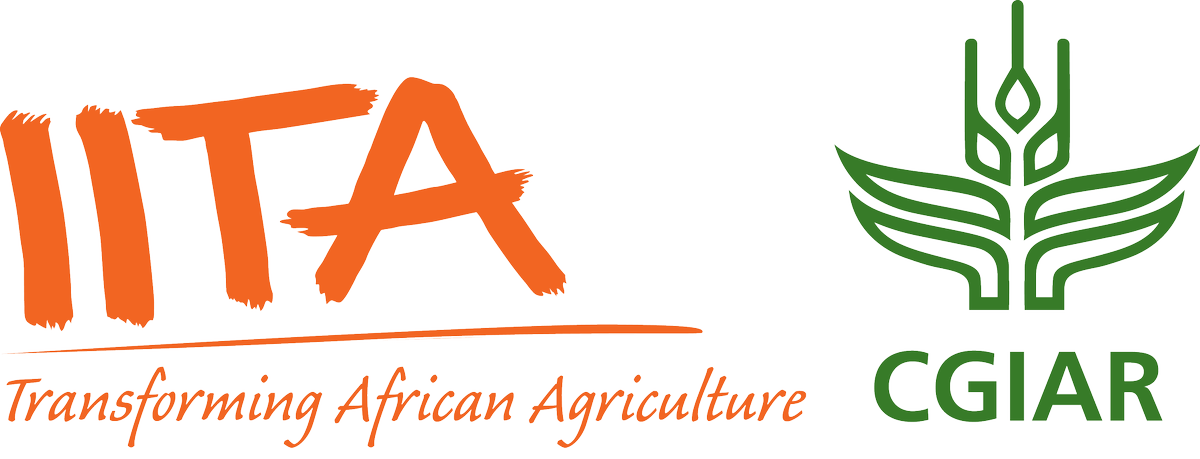Effects of genotype and growing environment on the chemical properties of yellow-fleshed cassava roots
Citation
Data and Resources
-
TOTAL CAROTENOID CONTENT OF YELLOW ROOT TRIAL.csvcsv
TOTAL CAROTENOID CONTENT OF YELLOW ROOT TRIAL.csv
-
GXE-chemical.csvcsv
GXE-chemical.csv
-
Data_Dictionary.csvcsv
Data_Dictionary.csv
Additional Info
| Field | Value |
|---|---|
| Creator | Alamu, Oladeji |
| Creator Affiliation | International Institute of Tropical Agriculture (IITA) |
| Creator email | o.alamu@cgiar.org |
| Creator ID Type | ORCID |
| Creator ID | 0000-0001-6263-1359 |
| Subject Vocab (AGROVOC/GACS/CAB) | Cassava,Genotype,Hydrogen cyanide,Location,Biofortification,Chemical properties,Roots |
| Subject(s) | Biofortified cassava |
| Publisher | International Institute of Tropical Agriculture (IITA) |
| Contributor Person 1 | Busie Maziya-Dixon |
| Contributor Person 1 Affiliation | International Institute of Tropical Agriculture (IITA) |
| Contributor Person 1 email | B.Maziya-Dixon@cgiar.org |
| Contributor Person 2 | Oreofeoluwatomi Lawal |
| Contributor Person 2 Affiliation | |
| Contributor Person 2 email | |
| Contributor Person 3 | Alfred Dixon |
| Contributor Person 3 Affiliation | International Institute of Tropical Agriculture (IITA) |
| Contributor Person 3 email | A.Dixon@cgiar.org |
| Contributor Person 4 | |
| Contributor Person 4 Affiliation | |
| Contributor Person 4 email | |
| Contributor Person 5 | |
| Contributor Person 5 Affiliation | |
| Contributor Person 5 email | |
| Contributor Person 6 | |
| Contributor Person 6 Affiliation | |
| Contributor Person 6 email | |
| Contributor Person 7 | |
| Contributor Person 7 Affiliation | |
| Contributor Person 7 email | |
| Contributor Person 8 | |
| Contributor Person 8 Affiliation | |
| Contributor Person 8 email | |
| Contributor Person 9 | |
| Contributor Person 9 Affiliation | |
| Contributor Person 9 email | |
| Contributor Person 10 | |
| Contributor Person 10 Affiliation | |
| Contributor Person 10 email | |
| Contributor Person 11 | |
| Contributor Person 11 Affiliation | |
| Contributor Person 11 email | |
| Contributor Person 12 | |
| Contributor Person 12 Affiliation | |
| Contributor Person 12 email | |
| Contributor Person 13 | |
| Contributor Person 13 Affiliation | |
| Contributor Person 13 email | |
| Contributor Person 14 | |
| Contributor Person 14 Affiliation | |
| Contributor Person 14 email | |
| Contributor Person 15 | |
| Contributor Person 15 Affiliation | |
| Contributor Person 15 email | |
| Contributor Person 16 | |
| Contributor Person 16 Affiliation | |
| Contributor Person 16 email | |
| Contributor Person 17 | |
| Contributor Person 17 Affiliation | |
| Contributor Person 17 email | |
| Contributor Person 18 | |
| Contributor Person 18 Affiliation | |
| Contributor Person 18 email | |
| Contributor Person 19 | |
| Contributor Person 19 Affiliation | |
| Contributor Person 19 email | |
| Contributor Project Lead Organisation Center | International Institute of Tropical Agriculture (IITA) |
| Contributor Project Lead Center | International Institute of Tropical Agriculture (IITA) |
| Contributor Initiative/CRP | CGIAR Research Program on Agriculture for Nutrition and Health (A4NH) |
| Contributor Partner | Not applicable |
| Contributor Donor | International Institute of Tropical Agriculture (IITA), Bill and Melinda Gates Foundation (BMGF), HarvestPlus, CGIAR Research Program on Roots, Tubers, and Bananas (RTB) |
| Contributor Project | Assessment of Chemical Properties of Yellow-Fleshed Cassava (Manihot esculenta) Roots as Affected by Genotypes and Growing Environments |
| Project ID | OPP1019962 |
| Contributor Affiliation | International Institute of Tropical Agriculture (IITA) |
| Open-Access status | Open Access |
| Production Date | 2020-02-02 |
| Embargo End Date | |
| Content Type | Dataset |
| File Format | csv |
| Identifier Type | DOI |
| Identifier | https://doi.org/10.25502/e3md-xt23/d |
| Identifier Citation | Alamu, E. O., Maziya-Dixon, B., Lawal, O., & Dixon, G. A. (2021). Assessment of chemical properties of yellow-fleshed cassava (Manihot esculenta) roots as affected by genotypes and growing environments. AGRIVITA Journal of Agricultural Science, 43(2), 409–421. https://doi.org/10.17503/agrivita.v43i2.2804 |
| Source | Assessment of Chemical Properties of Yellow-Fleshed Cassava (Manihot esculenta) Roots as Affected by Genotypes and Growing Environments |
| Language | English |
| Relation | Not applicable |
| Agroecological Zone | Subhumid warm tropics |
| Coverage Region | Western Africa |
| Coverage country | Nigeria |
| Coverage Admin Unit | Not applicable |
| Coverage Y (Latitude) | 9.60004 |
| Coverage X (Longitude) | 7.99997 |
| Coverage Start Date | 2010-04-04 |
| Coverage End Date | 2011-08-28 |
| Contact | Alamu, Oladeji; Food Science and Technology, International Institute of Tropical Agriculture (IITA) |
| Contact Email | o.alamu@cgiar.org |
| Restriction | CC-BY 4.0 |
| Email Permission | None |
| Rights | CC-BY 4.0 |
